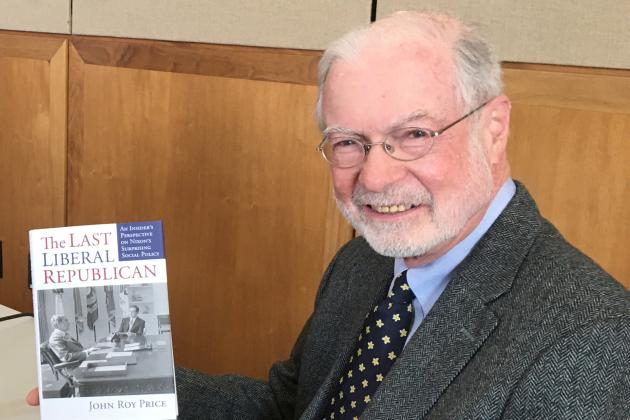PARTICIPANTS
Jonathan Meer, Michael Bordo, John Cochrane, John Cogan, Bob Hall, Laurie Hodrick, Gregor Jarosch, Dan Kessler, Stephen Langlois, Ed Lazear, Joe Newhouse, Josh Rauh, Amit Seru, George Shultz, Isaac Sorkin, John Taylor.
ISSUES DISCUSSED
Jonathan Meer, Associate Professor of Economics at Texas A&M University, discussed the topic “Recent Research on the Minimum Wage.” Classical models of labor markets suggest that the minimum wage should reduce employment. Whether or not it does, and if so by how much, is a heavily-debated empirical question. Analyses of the question based on correlations between state-level minimum wage laws and employment are plagued by the problem of legislative endogeneity. Minimum wage laws might be introduced in response to falling real wages in situations of declining labor demand, or alternatively (and in fact more consistent with the evidence) in times of growing employment.
As Prof. Meer emphasized, in empirical studies of this topic, it is essential to find appropriate counterfactuals, that is, control groups in which the evolution of labor supply and demand were in no way affected by the passage of minimum laws or by the determinants of these laws. The inclusion of controls and fixed effects in regression specifications can have the effect of absorbing confounding variation in factors that correlate with both the passage of minimum wage laws and the evolution of the labor market in treated states. However, such empirical specifications can alternatively over-control and discard valid identifying variation.
For example, some of the most highly-cited papers in this literature (Dube, Lester, and Reich (2010) in ReStat) find significant negative effects of minimum wages on employment that then disappear when state-specific trends and/or region-by-period fixed effects are included. As shown by Neumark, Salas and Wascher (2014) in ILR, arbitrary elimination of such variation can lead to an oversaturated regression models and in the case of the minimum wage, situations where the best control observations are invalidated and eliminated, thus biasing the estimate of the effect towards zero.
In his own work, Meer and West (2016) in JHR, Prof. Meer tests the hypothesis that the effect takes time to be reflected in employment levels, and that the nature of minimum wage changes makes it difficult to pick out this effect. Specifically, the main effects of the minimum wage may happen through changes in growth rather than an immediate drop in relative employment levels, and traditional specifications that include state time trends will not accurately capture these effects. Using a variety of different dynamic specifications, Meer and West find an overall minimum-wage elasticity of -0.07 on the equilibrium quantity of employment in the entire workforce, with much larger effects when one scales this up to focus only on affected groups.
Given the possibilities for the mechanization of routine work with ever increasing precision by robots, it is of great importance to understand not only the short-run but also the medium- and long-term impacts of the minimum wage on employment. The possibility of effects existing on other margins such as higher prices or lower net revenue, differences in hours worked, differences in non-wage composition, and the composition of the workforce also remains an important set of hypotheses for further inquiry.









